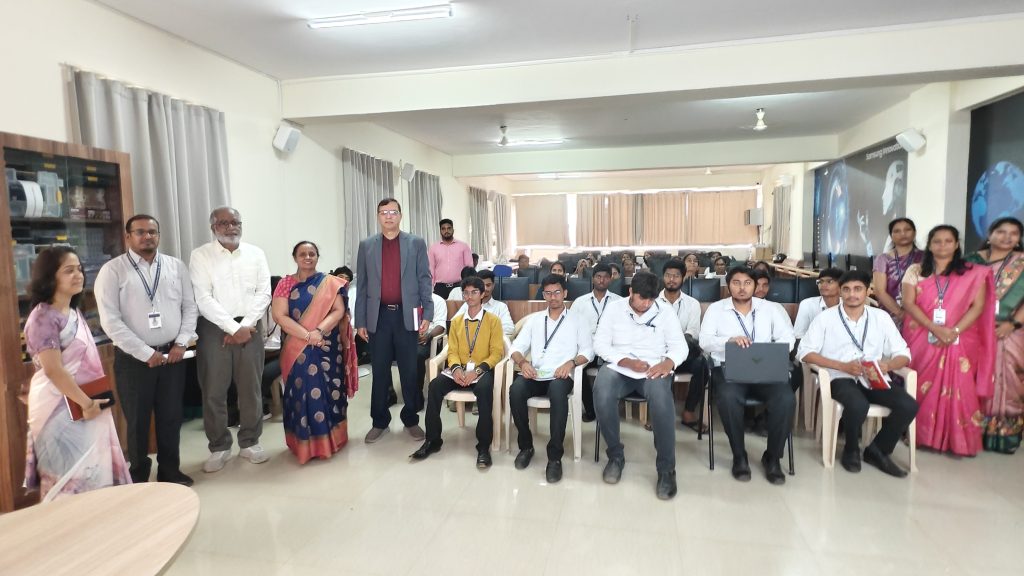Experiential Learning of Networks and Security
By Prof. Ram P Rustagi
Course Objectives:
• Understand network layer stack, and protocol communication.
• Understand network security and exploiting protocols to launch attacks.
• Understand TCP and UDP session hijacking.
• Understand firewalls and attack prevention.
• Understand buffer overflow attacks and security implications.
• Understand web security and web-based attacks (XSS, CSRF etc).

| Week/Day | Topic |
|---|---|
| D01 |
Overview of Security • Security Perspective, Familiarity with Linux, Familiarity with wireshark, Overview of Docker, Using ssh/putty/WSL on Windows |
| D02 |
Network Protocol Overview • Network Protocol Stack overview, Review basics of networking, network layering, protocol headers, encapsulation, Multiplexing and demultiplexing, Overview of scapy: A powerful interactive packet manipulation tool, Overview of how to send, sniff, dissect and forge network packets using Scapy |
| D03 |
Network Layer overview • Overview of IP protocol, headers and data, Overview of IP subnetting and masking, Overview of overlapped networks, Understanding application of Longest Prefix Match during packet forwarding, Overview of ARP Protocol and its roles in packet delivery to a host, Overview of Man-In-The-Middle attack and role of ARP |
| D04 |
Web and HTTP Overview • Overview of Web access and HTTP, Understanding of HTTP versions, Understanding HTTP status codes, Overview of Cookies, Understand role of cookies in session management, Manipulation of cookies |
| D05 |
Web Security Basics • Understanding web security basics, Cross Site Scripting (XSS) attack Overview, Understanding non-persistent and persistent XSS attacks, Cross Site Request Forgery (CSRF) overview, CSRF attacks with GET methods, CSRF attack with POST methods |
| D06 |
Transport Layer Basics • Overview of Transport layer, Overview of UDP, UDP attacks using Scapy, Overview of TCP, Understanding TCP Reliability, streaming and retransmission |
| D07 |
Firewalls and VPN Overview • Overview of Linux network packet processing, Overview of iptables, Understanding application gateways, Overview of Layer 3 Tunneling, Overview of Layer 2 tunnelling, Understanding TUN/TAP interfaces |
| D08 |
OS Security: Buffer overflow • Overview of Buffer Overflow, Understand Program memory layout, Understanding stack overflow, Role of processor registers in memory layout: RBP, RSP, Understanding role of environment variables during program execution |
| D09 |
Cryptography Overview • Understanding symmetric encryption, Use of Hash function in Security, Overview of symmetric algorithms, Understanding Asymmetric encryption mechanism, Overview of RSA Algorithm, Overview of Diffie-Hellman key Exchange algorithm |
| D10 |
Review • Overview of Clickjacking, Overview of HTML webpage structure, Document Object Model, Understand iframe, frames overlay and hidden frames, Security with AI and LLM |
Subject Matter Expert
Dr. Ram P Rustagi is a Professor of Practice in the Computer Science and Electrical Engineering Department at the University of Maryland, Baltimore County. He holds a Ph.D. from IIT Delhi and an M.Tech from IISc Bangalore, both earned in India. With a distinguished career spanning over 35 years in academia and technology, Dr. Rustagi brings a wealth of expertise to his field. In 2024, he was honored with the USISTEF award and will be collaborating with Personal Air Quality Systems in Bangalore on a pioneering initiative titled “Hyper Local Air Quality – AI Enabled Context Aware Content System.”





